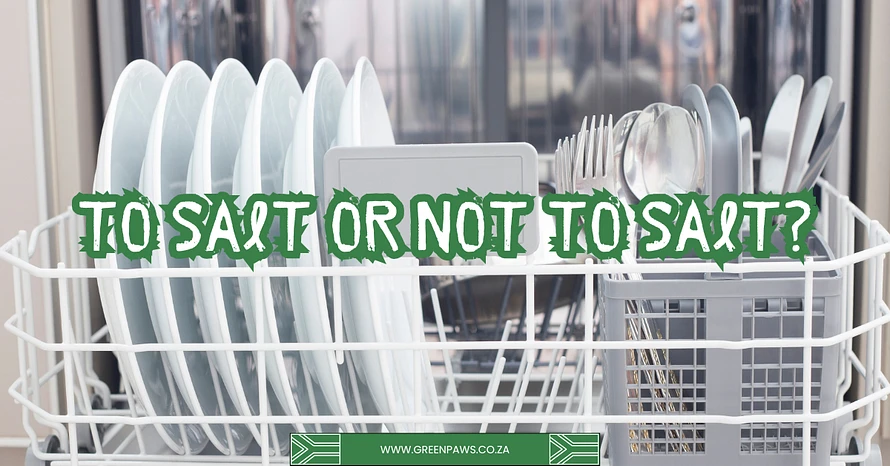
Why South Africans Should Use Dishwasher Salt (Even with All-in-One Tablets)
If you’re using fancy all-in-one dishwasher tablets, you might wonder: “Why bother adding dishwasher salt too?” It’s a common question! Many South Africans assume the tablets do all the work, but skipping salt could harm your dishwasher, leave dishes streaky, or even cost you money in repairs. Let’s break down why dishwasher salt is essential, even with tablets, and how it keeps your machine running smoothly.
What Does Dishwasher Salt Actually Do?
Dishwasher salt isn’t table salt – it’s a special coarse salt that softens hard water. South Africa’s water hardness varies by region, but in areas like Gauteng, Limpopo, or the Western Cape, tap water often contains high levels of calcium and magnesium. These minerals create limescale, which can:
-
Clog your dishwasher’s pipes.
-
Leave white spots on glasses and cutlery.
-
Reduce heating efficiency (meaning higher electricity bills!).
Your dishwasher has a built-in water softener that uses salt to “trap” these minerals. Without salt, the softener can’t work properly – even if your tablet claims to handle hard water.
But My Tablet Has Salt in It! Why Add More?
All-in-one tablets do contain some salt, but here’s the catch:
-
Not Enough for Hard Water: The salt in tablets is only enough for mildly hard water. In SA, many areas have very hard water (check your municipality’s water report!).
-
Wastes Tablet Power: If your machine is fighting limescale, the tablet can’t focus on cleaning. Result? Cloudy dishes and leftover grime.
-
Damages the Dishwasher: Over time, limescale clogs the pump and heating element – leading to costly repairs or replacements.
5 Reasons South Africans Should Use Dishwasher Salt
-
Protect Your Investment: A good dishwasher costs thousands. Salt prevents limescale damage, extending its lifespan.
-
Sparkling Dishes, Every Time: Soft water helps detergent dissolve properly, so glasses shine and plates look new.
-
Save Money: Avoid repair bills and reduce energy use (soft water heats faster!).
-
Eco-Friendly: Efficient cleaning = fewer rewash cycles and less water waste.
-
Works with All Detergents: Salt boosts powder, liquid, and tablet performance.
How to Use Dishwasher Salt
-
Check Your Manual: Locate the salt compartment (usually at the bottom of the machine).
-
Fill It Up: Use only dishwasher salt (not table salt or pool salt!). Twist open the cap and pour until full.
-
Top Up Monthly: The salt only runs out when the warning light comes on, but check every 4-6 weeks.
FAQ for South African Homes
Q: How do I know if my water is hard?
A: Look for white buildup on taps or showerheads. Many SA municipalities list water hardness online – e.g., Johannesburg’s water is “moderately hard” to “very hard”.
Q: Can I use ordinary salt?
A: No! Table salt is too fine and contains additives (like iodine) that damage dishwashers.
Q: What if my dishes are still spotty?
A: Try a rinse aid and salt – they work together for streak-free drying.
Where to Buy Dishwasher Salt in SA
-
Online: Takealot.com
Final Tip: Think of dishwasher salt as “insurance” for your machine. For just R30–R50 a month, you’ll avoid repair headaches and keep dishes looking perfect. Your future self (and your dishwasher) will thank you!